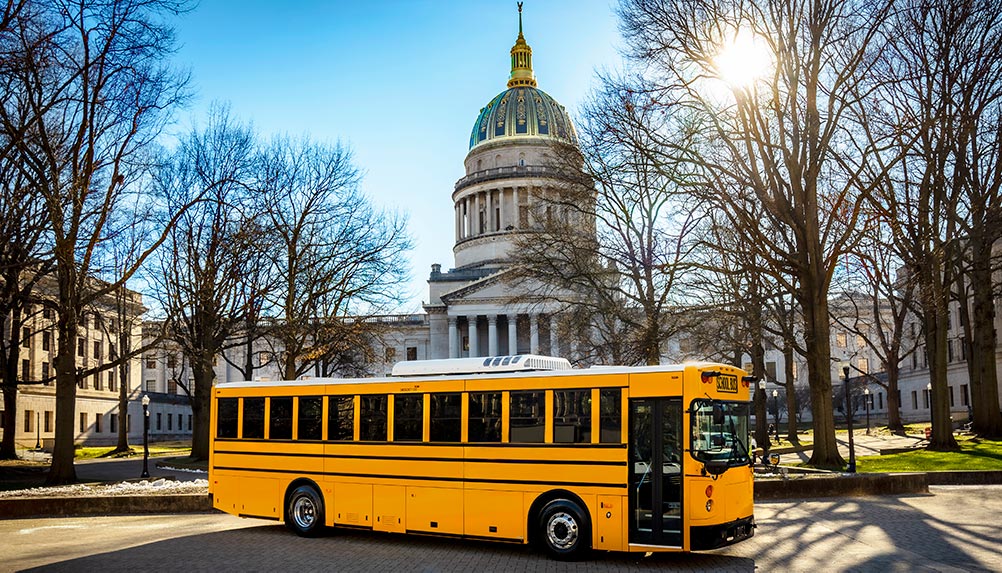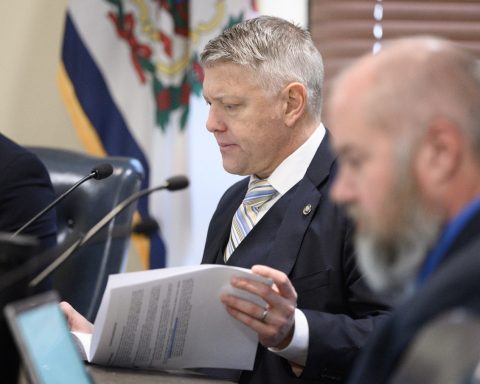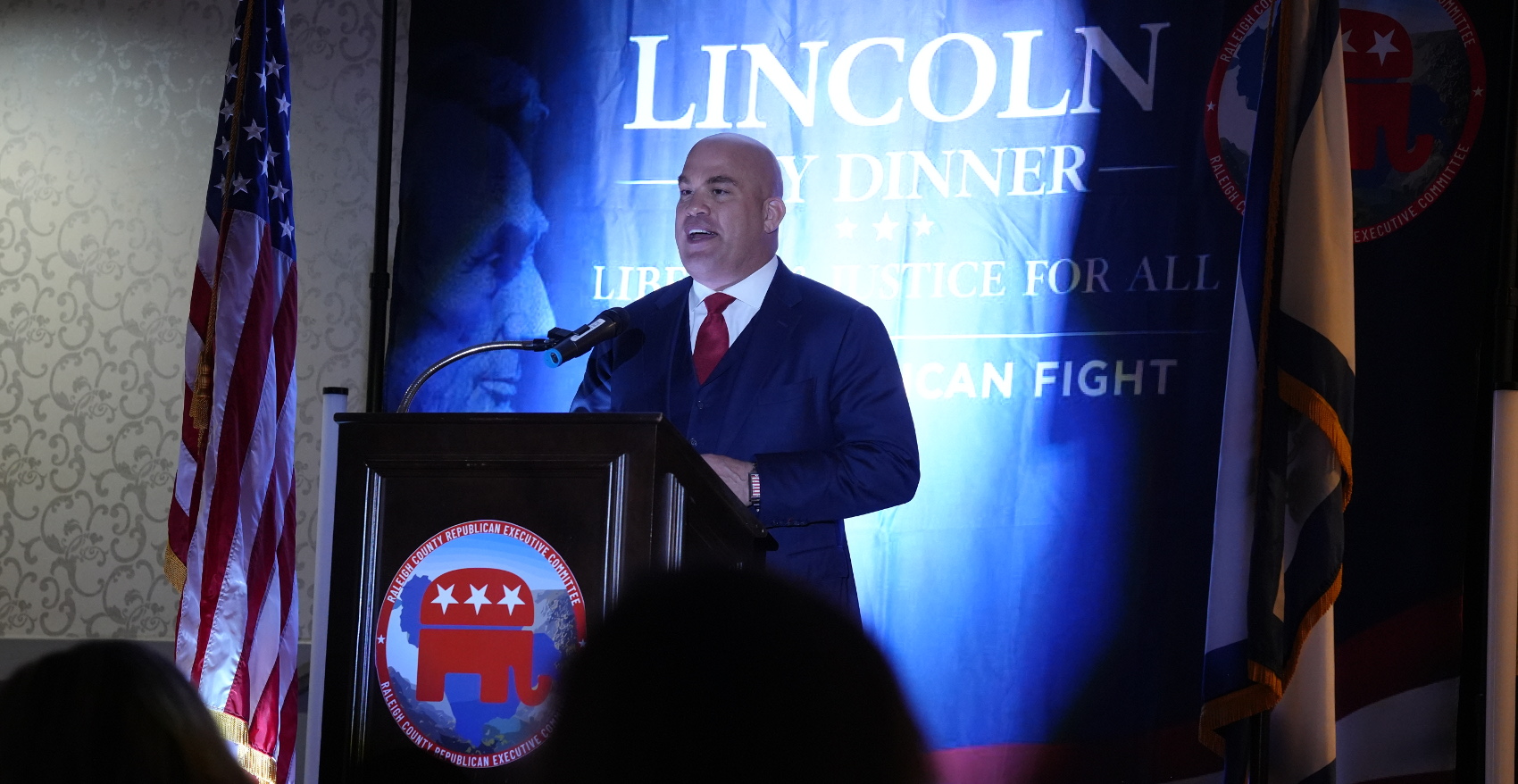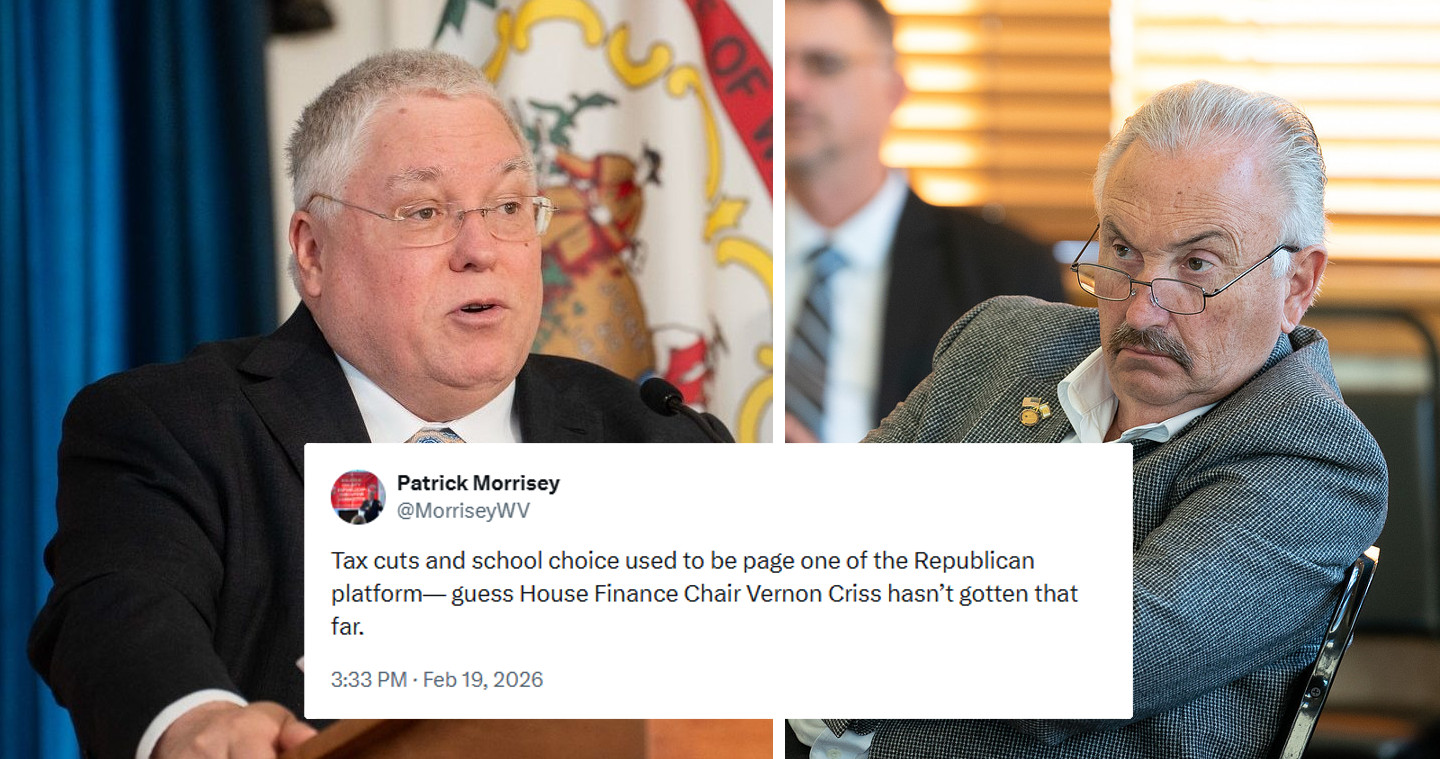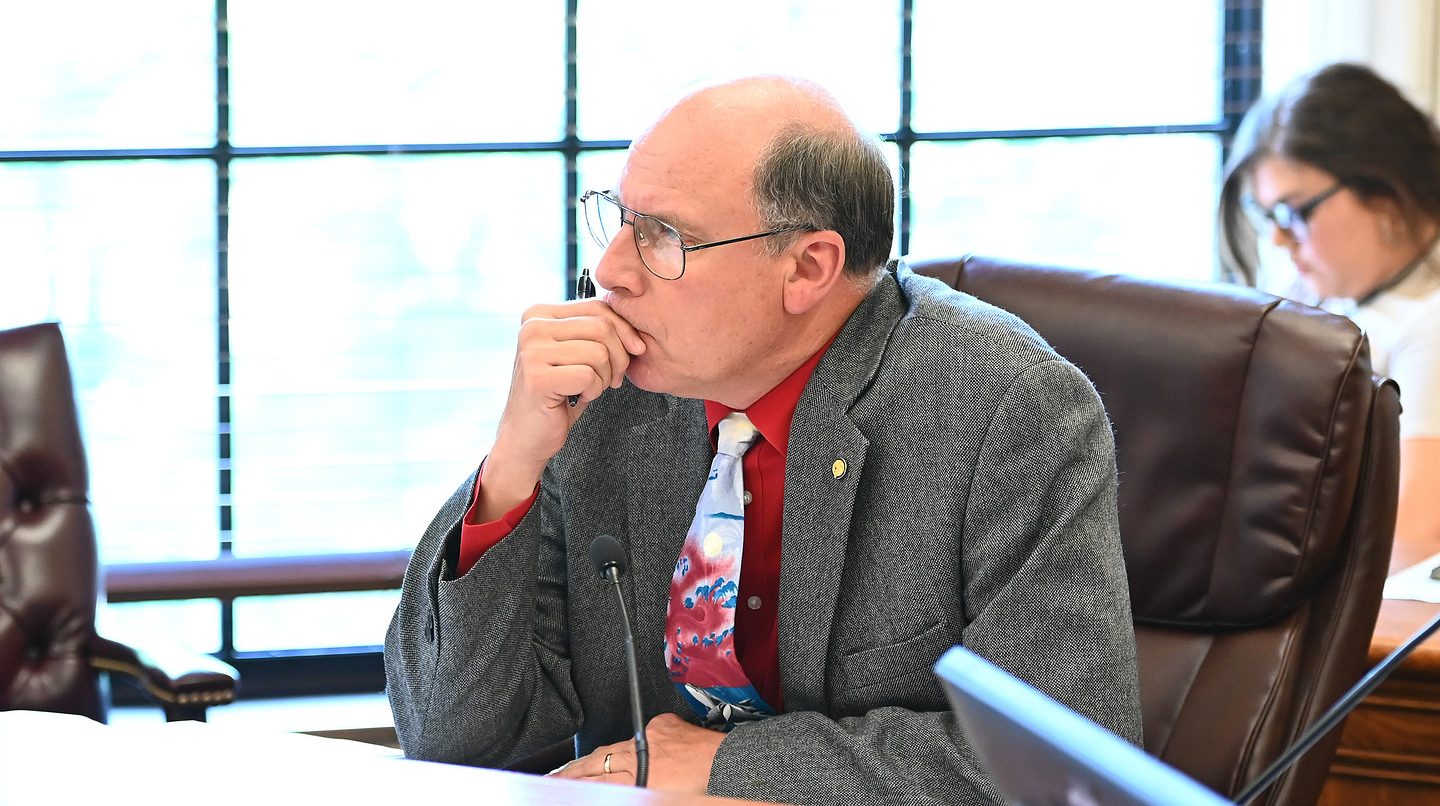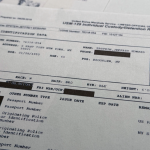CHARLESTON — West Virginia lawmakers committed millions of taxpayer dollars to GreenPower Motor Company, a Canadian electric bus manufacturer, in a high-profile effort to promote green energy and create jobs in the state. However, a closer examination reveals that the investment has been marked by significant financial instability, unmet job creation promises, and questionable cost-effectiveness, raising concerns over whether the project was driven by political motives rather than sound economic strategy.
Investment Details and Financial Decline
Prior to West Virginia’s initial investment, GreenPower’s financial performance was troubling. The company’s stock price, which peaked at $30.84 per share in February 2021, plummeted to $6.34 by February 2022.
In January 2022, GreenPower announced plans to open a manufacturing facility in South Charleston to produce electric school buses, including both Type D BEAST and Type A Nano BEAST models. The project was positioned as a major step toward reducing carbon emissions and modernizing the state’s economy by transitioning from fossil fuels to green energy.
To incentivize the project, the state of West Virginia committed $15 million to purchase GreenPower vehicles produced at the new facility. Additionally, the state entered into a lease/purchase agreement for 9.5 acres of land and an 80,000-square-foot building, with terms that included no upfront payment and lease payments starting nine months after production began. These payments were ultimately to be applied toward a total $6.7 million purchase of the property.
As part of the deal, the state also offered $3.5 million in employment incentives, with the promise to that GreenPower would create 900 jobs in South Charleston by 2023.
As of March 2025, the company’s share price has dropped to just .54 cents per share, a decline of over 91% from 2022.
Discrepancy in Job Creation
One of the most heavily promoted aspects of the GreenPower investment was the promise of job creation. State officials, including Sen. Eric Tarr (R-Putnam), presented the project as a substantial economic boost to the state, promising that it would create 900 jobs by 2023. However, as of late 2024, GreenPower had hired only 80 West Virginia employees, an egregious 91.11 percent shortfall from the initial stated projection.
Despite the low number of local hires, state officials continued to praise the project. In December 2023, Senator Eric Tarr (R-16) called GreenPower’s progress a “success,” highlighting the partnership between state, county, and city officials.
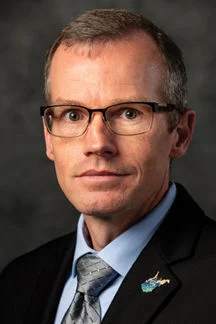
“The production success of GreenPower highlights the positive outcomes of partnerships,” Senator Tarr said. “When state, county and city officials team up with companies like GreenPower, the results are staggering. Economic activity and job creation by a company like GreenPower helps to bolster our 21st-century economy providing for the next generations of the state’s workforce.”
Despite these claims, the failure to meet job creation targets raised questions about the viability of the project and whether the promises made were more about political optics than actual economic impact.
Creating a “New Economy” with Global Approval
On January 14, 2022, Speaker of the House Roger Hanshaw attempted to explain the significance of GreenPower’s new plant in West Virginia, framing it as a pivotal step toward establishing a “new economy” within the state. In a statement that pointedly criticized the state’s reliance on traditional fossil fuel energy sources, Hanshaw described them as “antiquated technology” responsible for West Virginia’s “lagging economy.”

“For decades now, the story about the economy of West Virginia is that we’re a lagging economy and an economy based on antiquated technology that needs to find itself,” Hanshaw continued. “We’re here today to announce that we have found ourselves. We have found a new economy in West Virginia.”
Emphasizing the importance of transitioning away from carbon-emitting energy sources, Hanshaw highlighted the state’s growing commitment to global green-energy initiatives. He stressed that West Virginia’s shift to renewable energy is vital in meeting the broader goals of reducing carbon emissions and embracing environmentally sustainable practices.
“We have recognized that a new economy matters … and we are tickled to death to welcome, today, GreenPower to Charleston, West Virginia,” Hanshaw said. “We’re delighted to have you here, and not just because of the jobs and economic investment opportunity that you represent, but because of what GreenPower means to West Virginia in the face of the rest of America and the rest of the world.”
Hanshaw’s remarks also placed significant emphasis on the symbolic value of GreenPower’s new location in South Charleston, positioning it as a statement to the world that West Virginia is embracing the 21st century’s technological and economic demands.
“GreenPower’s location here in South Charleston, West Virginia, signals to the rest of the world that we are, in fact, a 21st-century economy, and we’re proud of that.”
Questionable Cost-Effectiveness
Another area of concern is the cost disparity between GreenPower’s electric buses and traditional diesel-powered school buses. While a new Blue Bird All American Type D diesel bus costs approximately $116,000 to $125,000, GreenPower’s Type D BEAST electric bus costs around $375,000. The Type A Nano BEAST, another model produced by GreenPower, is priced around $285,000 per bus.
Given the significant price difference, questions have been raised about whether taxpayers are receiving a good return on their investment. The high cost of the electric buses, combined with GreenPower’s financial instability, has fueled skepticism about the overall financial soundness of the deal.
Political Photo Ops and Messaging

In October 2024, Senator Shelley Moore Capito (R-WV), a vocal supporter of the GreenPower project, participated in a plant tour and drove one of the electric buses, as part of a staged publicity event.
Capito’s ride in the bus, designed to create a positive image of the project, raised further questions about the political motivations behind the investment.
“I can tell you I’ve always wondered how people drive large trucks or school buses and fire engines, and honestly, it was the smoothest driving thing I’ve ever seen,” Capito said. “It was very impressive. It’s nice to know it’s being built here too.”
However, the optics of the event were undermined by the fact that only 80 employees had been hired by GreenPower at the time, a number so small that the bus Capito drove, which accommodates 90 passengers, could have fit all of the company’s hired West Virginia employees — with room to spare.

During the visit, Senator Capito engaged with company leaders and handed over the keys to a new electric bus to Wyoming County School Superintendent Dr. John Henry.
Nasdaq Non-Compliance and Potential Delisting
Just weeks ago, GreenPower faced additional financial setbacks. On February 27, 2025, the company received a notice from Nasdaq for non-compliance with listing rules due to its stock price remaining below $1 per share for 30 consecutive business days. GreenPower has been given 180 calendar days to regain compliance by maintaining a closing price above $1 for 10 consecutive trading days.
This latest development marks another blow to the credibility of the project, further calling into question the judgment of state officials who continue to tout the company as a success despite its financial troubles and unmet promises.
Political Posturing
The GreenPower investment in West Virginia has raised significant concerns regarding its cost-effectiveness, the integrity of the promises made, and the political motivations behind the deal. While lawmakers continue to portray the project as a win for the state’s economy, the reality is that it has failed to meet key targets, including job creation and financial stability. The public has been left to bear the burden of a risky investment that appears to have been more about political posturing than genuine economic development.
As GreenPower’s financial troubles deepen and the promised jobs remain unfilled, questions about the long-term impact of the state’s involvement in this project will likely continue to grow. The failure to deliver on the promises made to the people of West Virginia raises important questions about accountability and the role of government in providing corporate welfare to struggling out-of-state corporations potentially seeking to take advantage of certain state lawmakers’ gambling habits.


